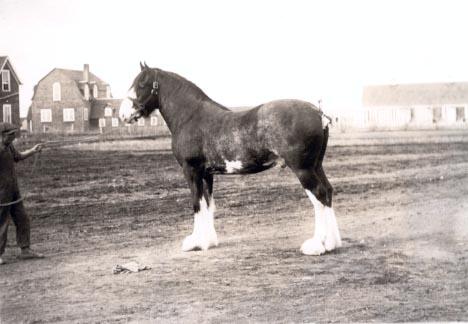
Área de título y declaración de responsabilidad
Título apropiado
Agriculture - Horses
Tipo general de material
- Graphic material
Título paralelo
Otra información de título
Título declaración de responsabilidad
Título notas
Nivel de descripción
Item
Institución archivística
Código de referencia
Área de edición
Declaración de edición
Declaración de responsabilidad de edición
Área de detalles específicos de la clase de material
Mención de la escala (cartográfica)
Mención de proyección (cartográfica)
Mención de coordenadas (cartográfica)
Mención de la escala (arquitectónica)
Jurisdicción de emisión y denominación (filatélico)
Área de fechas de creación
Fecha(s)
-
[192-?] (Criação)
Área de descripción física
Descripción física
1 photograph : b&w ; 18 x 13 cm
1 negative : b&w ; 12.5 x 10 cm
Área de series editoriales
Título apropiado de las series del editor
Títulos paralelos de serie editorial
Otra información de título de las series editoriales
Declaración de responsabilidad relativa a las series editoriales
Numeración dentro de la serie editorial
Nota en las series editoriales
Área de descripción del archivo
Nombre del productor
Historial de custodia
Alcance y contenido
Large Clydesdale with cropped tail, four white legs and white face, being held with a bridle in a yard. Buildings in the background.
Bio/Historical Note: By 1910, 19 horses had been purchased by the College of Agriculture that were good work horses or suitable for student class work. Two were purebred Clydesdales. Three light horses were also purchased. One named Barney was used in the morning to deliver milk to faculty in Nutana and in the afternoon on the buggy as Dean Rutherford made his farm rounds. In 1920 the Province asked the Animal Husbandry Department to establish a Clydesdale breeding stud. This led to development of an outstanding collection of prize winning horses that became a focus of the Department. In the 1920s the Percheron and Belgian breeders also demanded support for their breeds and so they were included in the university stud and some cross breeding was undertaken. The campus horses were used for field work for all Departments, general hauling and site work for new buildings. An unofficial use was for the Lady Godiva ride across campus each fall. By the 1940s it was clear that the era of horses as a main source of farm power was over. The final stallion used in the breeding program was the imported "Windlaw Proprietor," grand champion stallion at the 1946 Royal Winter Fair.

